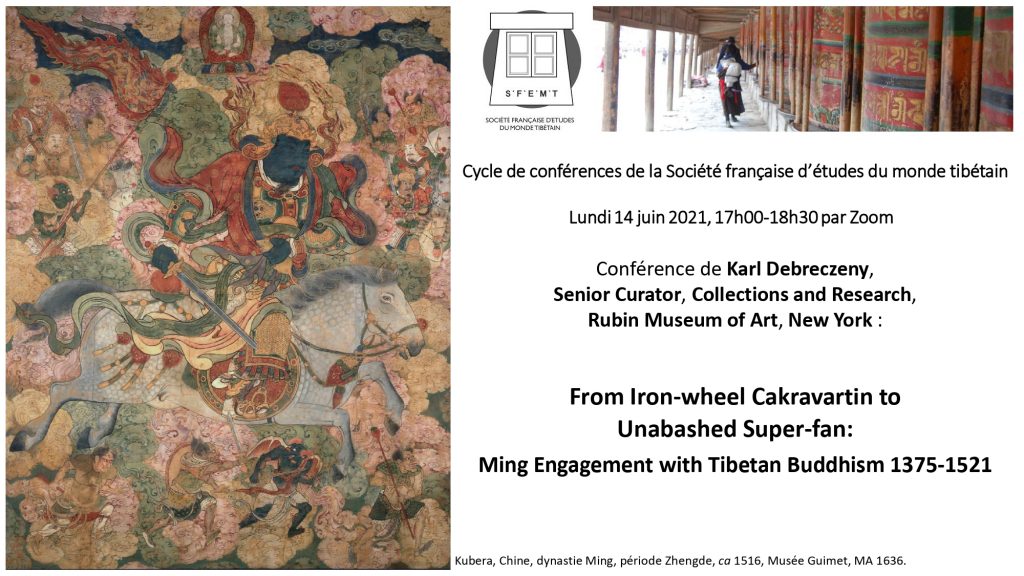La SFEMT a le plaisir d’annoncer la tenue, dans le cadre du Cycle Conférences SFEMT 2020/2021, de la conférence suivante :
From Iron-wheel Cakravartin to Unabashed Super-fan: Ming Engagement with Tibetan Buddhism 1375-1521
par Karl Debreczeny (Rubin Museum of Art, New York)
Lundi 14 juin 2021, 17h00-18h30
**La conférence se tiendra en ligne via Zoom**
Les modalités de connexion (lien Zoom et mot de passe) seront communiquées par mail via la liste de diffusion de la SFEMT **le jour même à 12 heures**. Les personnes qui ne sont pas inscrites sur notre liste de diffusion mais souhaitent assister à la conférence sont priées d’envoyer un message à sfemt.contact@gmail.com avant le 13/06/2021.
Résumé de la conférence :
Tibetan Buddhism’s dynamic political role in the courts of Northern Asia was a major catalyst in moving it beyond Tibet’s borders. Even after the collapse of the Mongol Empire, ca 1368, and the Chinese reclaimed their land establishing the Ming dynasty, the Chinese court followed Mongol precedents and Tibetan Buddhism continued as a faith of the powerful within the inner court. A number of objects and commissions reveal that engagement with Tibetan Buddhism became a defining aspect of imperial identity for the first half of the Ming. Thus a great deal of Tibetan Buddhist art was created in the Ming imperial workshops, both for internal court use and as part of complex diplomatic exchanges with Tibetan hierarchs, a projection of what we might call today “soft power.” However, if one looks closely at the context of these courtly gifts, one often finds the underlying meaning and intent was still as much about the Ming emperor as their Tibetan recipients.

